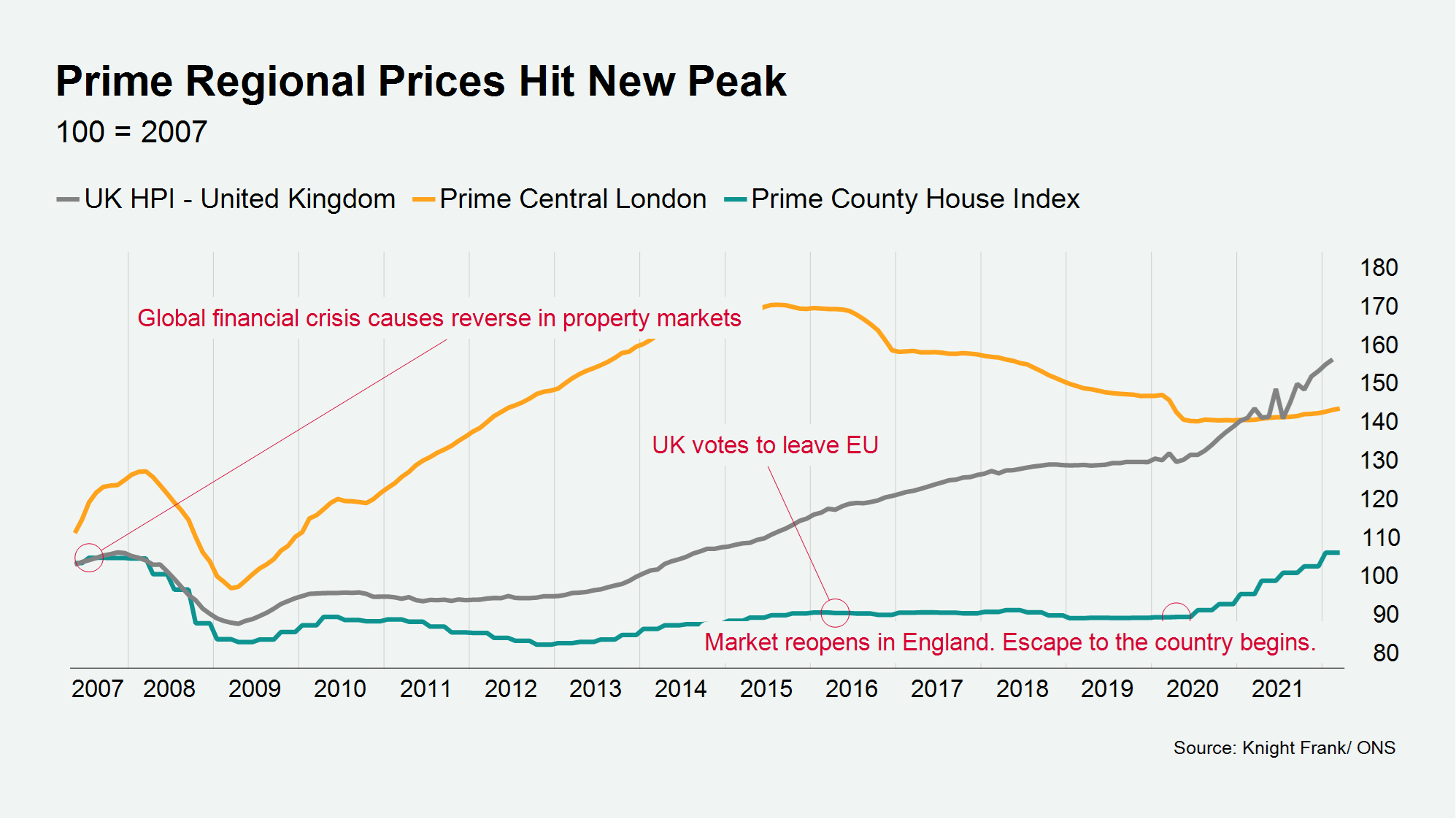Tight supply and high demand lifts value of UK Country properties past previous pre-GFC peak
Prime Country House Index 289.7 / Manor House 275.4 / Cottage 315.5
2 minutes to read
Prime regional prices grew at their strongest annual rate since Q3 2009 in March, taking average values to a new high.
The annual change was 11.3%, which was up from 10.6% in December. On a quarterly basis, prices increased by 3.5%, which was the strongest rate since Q2 2021.
It lifted the Prime Country House Index 1% above its previous peak in the third quarter of 2007, before the global financial crisis (GFC) led to a slump in property values.
“The last two years has seen an explosion in interest in properties both in the countryside and in regional towns and cities, with huge numbers of buyers re-evaluating their lifestyles,” said James Cleland, head of Knight Frank’s Country Business.
“This change feels locked in, coinciding with the increase in working from home, and for homeowners contemplating a move or downsizing it is a fantastic time to sell,” James added.
Price growth outside of London had been relatively muted before the pandemic (see chart), due to a series of tax changes that disproportionately affected higher-value properties, and political uncertainty caused by issues such as Brexit.

Since then, the market has seen record-breaking growth as buyers sought more space and greenery, with high-value properties leading the way.
However, it has underperformed the mainstream and prime central London (PCL) markets in the period since 2007. Mainstream property values have increased 48% since the third quarter of 2007 (to February 2022), and PCL by 16.5% over the same period. The fact average prices in the country have only just recovered to their 2007 level suggests there remains headroom for future growth.
For now, with the spring market underway, low supply remains the biggest challenge facing buyers outside of London.
Market valuation appraisals, a leading indicator of supply, increased by 13.9% in the first quarter of 2022 versus the five-year average. However, new instructions were down 8% in the same period, while new prospective buyers were up 42%.
“The spring market has arrived early as sellers look to take advantage of the strong market. Those buyers that hold off now under the belief that significantly more supply is coming could miss out,” said Mark Proctor, regional partner for the South West at Knight Frank.
With headwinds such as higher mortgage rates and inflation set to bite in the second half of the year, prime regional price growth is expected to slow and finish 2022 in single digit territory as our newly published forecast set out.